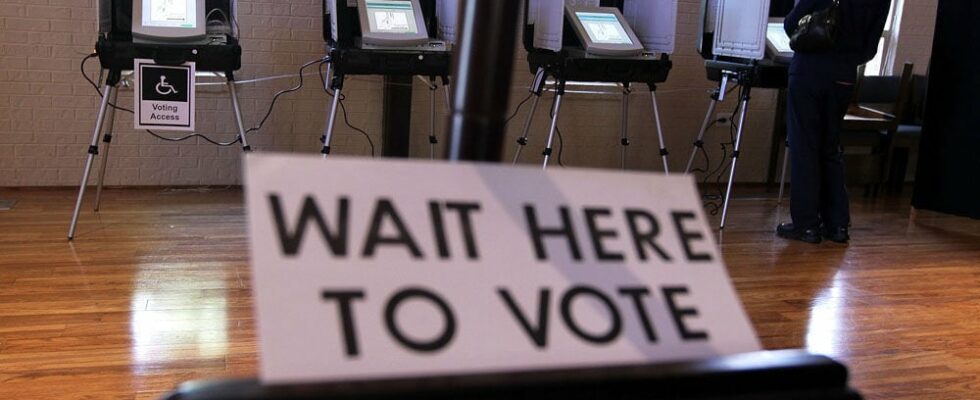It’s a story that spread across the state of Georgia like wildfire: in Whitfield County, a voter using a voting machine with a touch screen mistakenly selected the name of a candidate she did not wish to elect. If the incident was avoided – the voter was able to instantly correct her error and vote for the right candidate – the affair took on enormous proportions on social networks. Across the country now circulates a fake news according to which voting machines from the manufacturer Dominion Voting Systems were actually used to orchestrate large-scale electoral fraud, reports the New York Times. Less than two weeks before the result of the American elections, which pit Democratic Vice-President Kamala Harris against former Republican President Donald Trump, these false accusations of electoral fraud are multiplying throughout the country.
At each election in the United States, conspiracy theories accuse, with metronome regularity, machines of changing votes. In 2020, it was Donald Trump who himself spread these rumors after his defeat against Joe Biden, accusing the Dominion company of having allowed fraud against him during the election. According to him and his advisers, former New York Mayor Rudy Giuliani and lawyer Sidney Powell, the company was even linked to the Hugo Chavez regime in Venezuela.
Two states, one conspiracy theory
In 2024, rumors of fraud similar to those of 2020 are making a comeback on social networks, relayed by conspiracy theorists, far-right activists but also… American political figures. In the case of Georgia, it was Republican elected official Marjorie Taylor Green who spread the rumor. “This is exactly the kind of fraud we saw in 2020 and it cannot be tolerated,” she wrote on her X account, before going to peddle the false news on the livestream of Alex Jones, Pope conspiracy theorist in the United States and far-right radio host. According to a study by New York Timesfake news has been read millions of times (3.5 million for Marjorie Taylor Green’s tweet alone), on X, Rumble and other fringe social networks.
The false information has become so widespread that it has been denied by the start-up specializing in monitoring online disinformation NewsGuard. “On social media, right-wing users claimed that this incident demonstrated that voting machines were switching the votes of Georgia voters. However, there is no credible evidence that Dominion voting machines were switching votes in the county of Whitfield”, relates in particular the organization.
The same conspiracy rumor was also blown up – and also denied by NewsGuard – in Tarrant County, Texas, where a man claimed in a video to have voted for a candidate… before the voting machine transformed his vote.
This proliferation of rumors, even vigorously denied, could have consequences on the outcome of the election. “Research shows that the more we encounter information, the more we tend to judge it to be true. This is linked to a cognitive mechanism: the information is processed more fluidly from the second time we receive it,” explained in June at L’Express the sociologist and research director of the Descartes Foundation, Laurent Cordonier. Increasingly exposed to these poisoncould Americans all end up believing, on the evening of November 5, that the election was stolen from them?
